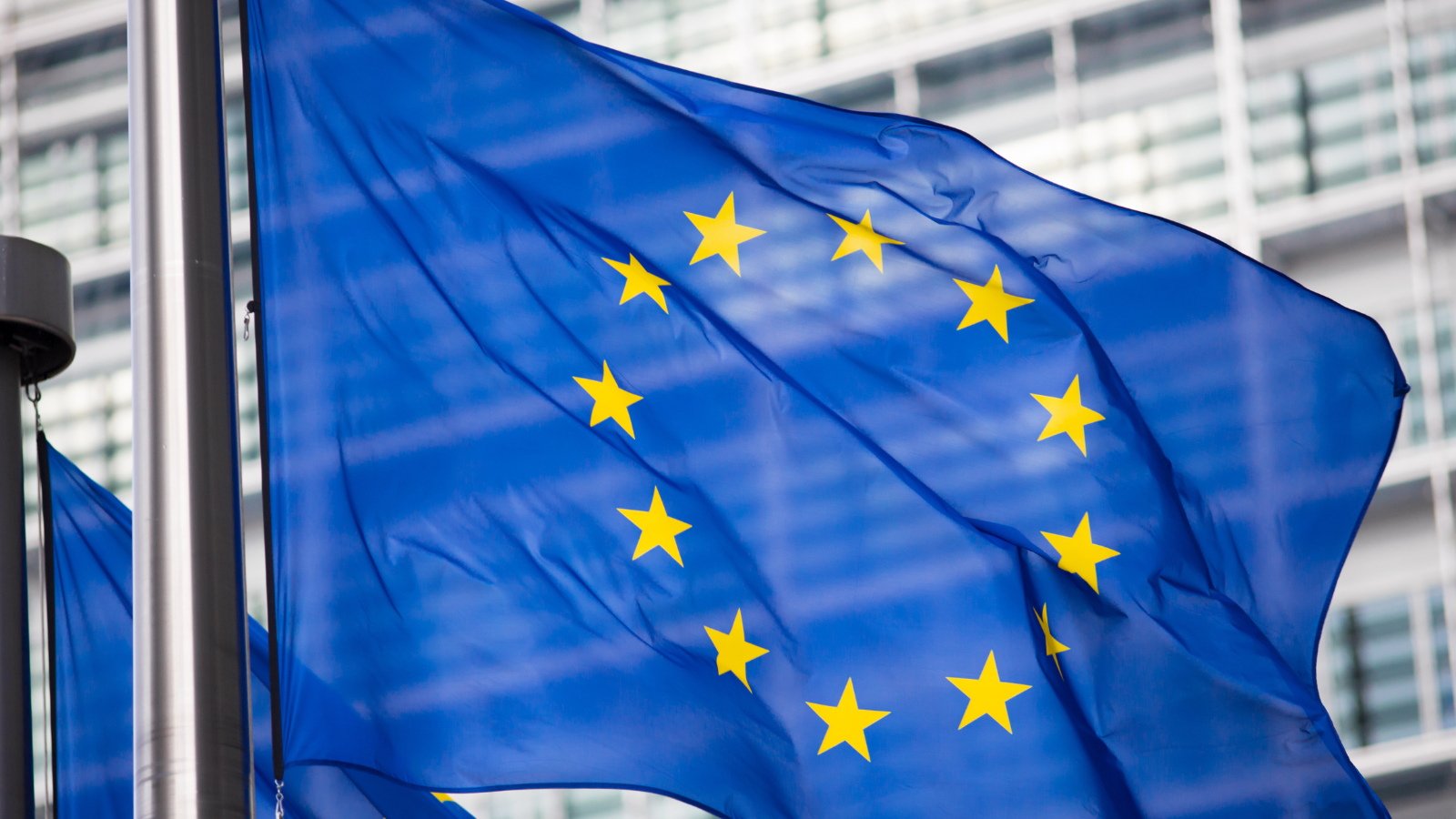In light of Russia’s ongoing war against Ukraine, the EU Council adopted its 14th sanctions package this week with the intent to strengthen enforcement against sanctions evasion.
The Council added 69 individuals and 47 entities to its sanctions list and imposed export controls on 61 companies that support Russia’s defense and security sector.
For the first time, the EU also designated 27 vessels for contributing to Russia’s war in Ukraine.
The new regulations put a strong emphasis on preventing circumvention, calling on EU companies to implement enhanced due diligence mechanisms and noting that even unwitting breaches of sanctions will be penalized if companies are found not to have carried out sufficient checks. Some of these new measures bring the EU’s enforcement actions against Russia closer to those already being implemented by the U.S. and U.K.
Aside from introducing the first-ever EU bans on Russian liquefied natural gas (LNG) trans-shipments, the new measures restrict financial and trade operations with entities located outside of the EU territory that support Russia’s defense-industrial base.
Targeting Financial Institutions Outside of the EU
The EU Council will ban transactions with targeted financial institutions, including crypto providers, located outside of the bloc that support Russia’s defense-industrial base.
This support may be through the facilitation of transactions that support the export, supply, sale, transfer, or transport to Russia of dual-use goods and technology, including battlefield goods, firearms, ammunition, and other sensitive items.
The targeting of those financial institutions is a significant development for EU regulations as it complements a U.S. executive order from December 2023, which also seeks to target foreign financial institutions. The inclusion of an extraterritorial focus indicates the urgency that Western nations have to close circumvention gaps and mandate companies to apply stricter due diligence when carrying out international business.
The EU provides protection against liability that is granted to EU operators if they did not know, or had no reasonable cause to suspect, that their actions would breach EU restrictive measures. However, with the introduction of the 14th sanctions package, this protection cannot be applied where EU operators have failed to carry out appropriate due diligence.
It is now expected that where there is publicly or readily available information, it is duly taken into account when carrying out appropriate due diligence. If these basic checks are not conducted, then the EU operator cannot successfully invoke the protection of the Union.
Closing the Gap on Circumvention
The EU regulations will also focus on additional due diligence requirements to further crack down on sanctions circumvention.
For instance, EU parent companies are now required to take all the necessary steps to prevent their overseas subsidiaries (that are 50 percent or more owned or controlled) from taking part in activities that violate EU sanctions. In addition, EU individuals or entities involved in the export of battlefield goods will need to implement due diligence mechanisms to ensure that these are not ultimately re-exported to Russian end-users.
Notably, the regulatory package expands on the range of scenarios under which individuals or entities can be penalized for taking part in circumvention schemes. From now on, if EU operators are aware that they may be engaging in risky activities and turn a blind eye to them, they could face enforcement action should sanctions circumvention occur.
Prior to the adoption of these regulations, EU operators must have deliberately sought to circumvent sanctions in order for them to be liable for that offense.
Targeting Trans-Shipment Hubs and Russia’s “Shadow Fleet”
The Council also imposed export controls on 61 additional entities that support Russia’s military-industrial complex. Some of these companies are located in Russia and China, but notably a number of them are in jurisdictions that are known to be trans-shipment hubs, such as Hong Kong, Kyrgyzstan, Kazakhstan, Türkiye, and the United Arab Emirates.
And for the first time, the EU sanctioned 27 vessels for their contribution to Russia’s war against Ukraine. EU authorities and port operators are now required to prevent those vessels from accessing EU ports, anchorage zones, and locks.
Less than half of those targeted vessels are registered in Russia, with 17 of them sailing under the flags of Panama, the Cook Islands, Singapore, Gabon, Cameroon, Comoros, and Guinea-Bissau. This move replicates measures already implemented by the U.S. and U.K. targeting the Russian “shadow fleet” of vessels that have been helping Russia maintain its oil exports over the G7 price cap.
The price cap was established in 2022 by members of the G7 and Australia to make it harder for Russia to use oil profits to fund its war against Ukraine.
Holding Entities Accountable
With these new regulatory measures, the EU is prioritizing efforts to close gaps in sanctions circumvention by placing additional responsibility on individuals and entities to conduct appropriate and effective enhanced due diligence and to undertake their own open-source research and investigations into risk exposure.
The addition of entities subject to export restrictions that are located in trans-shipment hubs emphasizes the importance for EU companies that trade high-risk items to conduct enhanced due diligence when their buyers are based in those jurisdictions.
The Council added 69 individuals and 47 entities to its sanctions list and imposed export controls on 61 companies that support Russia’s defense and security sector.
For the first time, the EU also designated 27 vessels for contributing to Russia’s war in Ukraine.
The new regulations put a strong emphasis on preventing circumvention, calling on EU companies to implement enhanced due diligence mechanisms and noting that even unwitting breaches of sanctions will be penalized if companies are found not to have carried out sufficient checks. Some of these new measures bring the EU’s enforcement actions against Russia closer to those already being implemented by the U.S. and U.K.
Aside from introducing the first-ever EU bans on Russian liquefied natural gas (LNG) trans-shipments, the new measures restrict financial and trade operations with entities located outside of the EU territory that support Russia’s defense-industrial base.
Targeting Financial Institutions Outside of the EU
The EU Council will ban transactions with targeted financial institutions, including crypto providers, located outside of the bloc that support Russia’s defense-industrial base.
This support may be through the facilitation of transactions that support the export, supply, sale, transfer, or transport to Russia of dual-use goods and technology, including battlefield goods, firearms, ammunition, and other sensitive items.
The targeting of those financial institutions is a significant development for EU regulations as it complements a U.S. executive order from December 2023, which also seeks to target foreign financial institutions. The inclusion of an extraterritorial focus indicates the urgency that Western nations have to close circumvention gaps and mandate companies to apply stricter due diligence when carrying out international business.
The EU provides protection against liability that is granted to EU operators if they did not know, or had no reasonable cause to suspect, that their actions would breach EU restrictive measures. However, with the introduction of the 14th sanctions package, this protection cannot be applied where EU operators have failed to carry out appropriate due diligence.
It is now expected that where there is publicly or readily available information, it is duly taken into account when carrying out appropriate due diligence. If these basic checks are not conducted, then the EU operator cannot successfully invoke the protection of the Union.
Closing the Gap on Circumvention
The EU regulations will also focus on additional due diligence requirements to further crack down on sanctions circumvention.
For instance, EU parent companies are now required to take all the necessary steps to prevent their overseas subsidiaries (that are 50 percent or more owned or controlled) from taking part in activities that violate EU sanctions. In addition, EU individuals or entities involved in the export of battlefield goods will need to implement due diligence mechanisms to ensure that these are not ultimately re-exported to Russian end-users.
Notably, the regulatory package expands on the range of scenarios under which individuals or entities can be penalized for taking part in circumvention schemes. From now on, if EU operators are aware that they may be engaging in risky activities and turn a blind eye to them, they could face enforcement action should sanctions circumvention occur.
Prior to the adoption of these regulations, EU operators must have deliberately sought to circumvent sanctions in order for them to be liable for that offense.
Targeting Trans-Shipment Hubs and Russia’s “Shadow Fleet”
The Council also imposed export controls on 61 additional entities that support Russia’s military-industrial complex. Some of these companies are located in Russia and China, but notably a number of them are in jurisdictions that are known to be trans-shipment hubs, such as Hong Kong, Kyrgyzstan, Kazakhstan, Türkiye, and the United Arab Emirates.
And for the first time, the EU sanctioned 27 vessels for their contribution to Russia’s war against Ukraine. EU authorities and port operators are now required to prevent those vessels from accessing EU ports, anchorage zones, and locks.
Less than half of those targeted vessels are registered in Russia, with 17 of them sailing under the flags of Panama, the Cook Islands, Singapore, Gabon, Cameroon, Comoros, and Guinea-Bissau. This move replicates measures already implemented by the U.S. and U.K. targeting the Russian “shadow fleet” of vessels that have been helping Russia maintain its oil exports over the G7 price cap.
The price cap was established in 2022 by members of the G7 and Australia to make it harder for Russia to use oil profits to fund its war against Ukraine.
Holding Entities Accountable
With these new regulatory measures, the EU is prioritizing efforts to close gaps in sanctions circumvention by placing additional responsibility on individuals and entities to conduct appropriate and effective enhanced due diligence and to undertake their own open-source research and investigations into risk exposure.
The addition of entities subject to export restrictions that are located in trans-shipment hubs emphasizes the importance for EU companies that trade high-risk items to conduct enhanced due diligence when their buyers are based in those jurisdictions.







